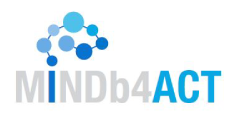 https://www.synyo.com/wp-content/uploads/SYNYO-NEWS-featured-image-NEW01009401EN.png
400
459
leo
https://www.synyo.com/wp-content/uploads/2017/09/synyo-logo.png
leo2026-02-01 13:41:502026-02-03 10:18:50GreenEsteem: Project for sustainable Nature-Based Solutions through Co-Creation Launched
https://www.synyo.com/wp-content/uploads/SYNYO-NEWS-featured-image-NEW01009401EN.png
400
459
leo
https://www.synyo.com/wp-content/uploads/2017/09/synyo-logo.png
leo2026-02-01 13:41:502026-02-03 10:18:50GreenEsteem: Project for sustainable Nature-Based Solutions through Co-Creation LaunchedMINDb4ACT

MINDb4ACT: Exchanging experiences and good practices to counter violent extremism
In addition to the research and living labs implemented as part of the MINDb4ACT project, the partners conducted an analysis of the counter-radicalisation landscape in the project partner countries, including Austria. Both the policy analysis and the empirical living labs research results in evidence-based recommendations for the Austrian counter violent extremism initiatives and strategies.
Government’s focus has shifted to establish coordination and connections between the various projects and stakeholders in an effort to provide guidance and establish a more coherent overall approach. Early examples of this can be seen in the creation of the Netzwerk Demokratie Kultur und Prävention in 2014 or DERAD in 2015 and have since then be continued through networks like the Bundesweites Netzwerk Extremismusprävention und Deradikalisierung initiated in 2017, which by 2018 had developed a coherent and unified Strategy for the Prevention and Countering of Violent Extremism and Deradicalisation. On European level, Austrian government agencies have become active in projects like EXIT Europe to establish networks and facilitate an ongoing information exchange. Furthermore, efforts to increase the understanding and capacities of employees of public institutions have been launched, like the Werkstatt.Wien. This trend has also been continued on a regional level through for instance the Extremismuspräventionsstelle Steiermark.
The timing of these initiatives also hints towards the accuracy of Götsch’s (2017) observation that 2014 initialized a change in the perception and priority of Austrian public authorities towards the prevention of violent extremism. The prominent case of two Viennese school girls, having joined DAESH and left for Syria in 2014 is hereby described as having had a major influence on this trend.
Challenges
Despite the Austrian Strategy for the Prevention and Countering of Violent Extremism and Deradicalisation includes a variety of important domains and fields for prevention as well as overall directions for prevention work in Austria, the strategy and the related network has several weaknesses:
- First, the strategy remains on a very general level by defining mainly the core pillars and the overall frame. Large parts of the documents should therefore rather be understood as a memorandum of understanding than as a strategy.
- Second, there has not been any activity by the network since the strategy was launched. Originally, it was intended that dedicated working groups develop practical guides and action points for each of the eight main pillars of the strategy. However, there has not been any output so far or the activities haven’t been communicated, which leaves the impression that the network is generally inactive.
- Third, although the strategy suggests the implementation of a “central point of coordination against radicalisation and extremism”, such a coordination office has not been implemented yet. However, a coordination office would not only be crucial to push the development of the action points for each of the core pillars of the strategy, but it would also be important to communicate the activities of the network, to keep key players on board by coordinating the activities, to integrate new players for extending the network, and to host a repository or knowledge base of resources and contacts.
- Fourth, while the strategy considers interdisciplinary research on radicalisation and extremism as important, there are only few interdisciplinary efforts in this field. While the strategy remains quite vague in most points, it provides two concrete suggestions to bundle, support and boost research efforts: by establishing a publicly accessible data base on extremist organisations and relevant results, and by establishing a scientific competence centre.
Recommendations
Based on the analysis, it is recommended to establish an independent network coordination office for supporting the specification of the strategy, the implementation of the action points and the communication of the activities as well as for managing, coordinating and increasing the multi-stakeholder network and the working groups.
Furthermore, the project recommends to set-up a scientific competence centre either within an established institution such as a university or the Austrian Academy of Science for providing an overview of all research activities, create cooperation between different institutions, collect and provide resources (such as data, results, projects etc.) as well as research coordination through the related calls of the KIRAS program.
For supporting further research, it is recommended to increase the funding for transdisciplinary research projects on radicalisation and violent extremism through the KIRAS program. Related to that, particular support especially for projects that aim at preventing radicalisation and countering extremism online through new methods and approaches such as VR-trainings, serious gaming and state-of-the-art videos is recommended.
Furthermore, Austrian public authorities should be encouraged and supported to participate more often in European research and innovation projects in the domain of radicalisation and violent extremism by providing it with an administrative framework that allows to claim costs for hiring project staff and set up a dedicated project office.
Finally, the Austrian public authorities need to foster critical media consumption, which is crucial for radicalisation prevention, by introducing media literacy as a dedicated subject in schools.
Links
https://cordis.europa.eu/project/id/740543
Keywords
Radicalisation prevention, policy recommendations, digital literacy, research, counter-violent extremism




